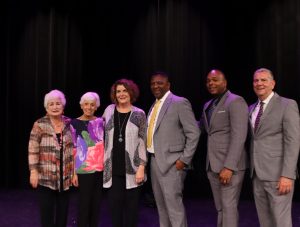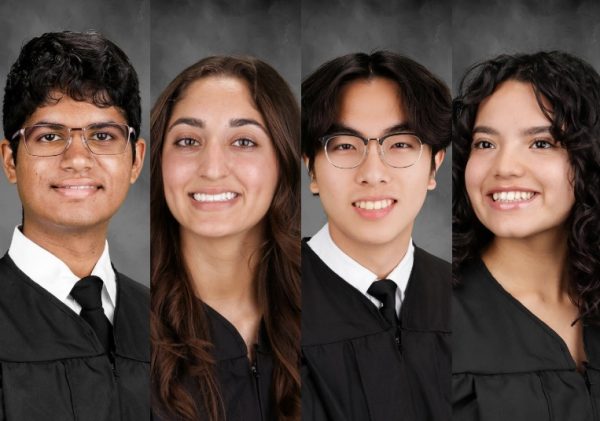BTS ISSUE: DeSantis Signs Bright Futures Policy Change
New bill signed into law changes service requirements needed to receive Bright Futures benefits.
Photo Cecilia Cheng
Pim Kruthun (’22) (left) and Trinavy (’22) at last year’s graduation at the Florida State Fairgrounds.
August 5, 2022
With college coming onto the horizon for many rising seniors, the costs of financing one’s higher education becomes a very real issue for many. In Florida, students have the opportunity to receive money from the Bright Futures Scholarship, providing they meet certain requirements.
Florida Governor, Ronald DeSantis, signed House Bill 461 on June 27, changing the requirements needed for a student to receive the Bright Futures Scholarship. In previous years, a student needed to accumulate a total of 100 hours of community service, amongst other requirements, to receive the full benefits of the academic scholarship. HB 461 changed this to be either 100 hours of community services or 100 paid work hours.
“Florida students should not lose the opportunity to receive a Bright Futures Scholarship because they have to work to help their families make ends meet,” DeSantis said.
Such a change in policy seeks to make the scholarship more accessible to students, especially to kids who already have jobs and have dedicated much time to gain real-world work experience.
“The change in requirements for the Bright Futures Scholarship has definitely made it easier to receive benefits from this program…[volunteer] opportunities can sometimes be limited in terms of how many people they can accept or how often they are made publicly available,” Chelsea Rodriguez (’23) said. “I agree with this change in policy because either way the student completing the hours is working for them (the hours), which I feel like is the whole point, students working hard for a chance at a better future.”
On top of making the scholarship easier to attain, being able to count work hours as volunteer hours has reduced the stress placed upon the shoulders of many students who juggle both jobs and school responsibilities.
“This relieves so much stress because I am a senior with no service hours, but I have been working for over a year now,” Tati Zayes (’23), a waitress at Taste of Boston, said.
Many believe that this change in policy won’t change much in our society as the alleged value of volunteering will not be lost.
“If you have the opportunity to work…while you’re helping to support your family and be able to check that box of being able to use those hours towards your college. That’s such a win-win situation for our children. It’s not taking away the opportunity to show our children the importance of volunteering,” Florida House Representative Susan Valdés said.
Valdés, who is also the co-sponsor of the bill, is not alone in saying this, in fact, not only was the vote unanimously passed through the Florida House of Representatives, but RHS students somewhat share her sentiment.
“…people volunteering are doing it to get something out of it which doesn’t make their actions purely selfless, so I don’t think there will be a significant contrast within our society,” Rodriguez said.






















